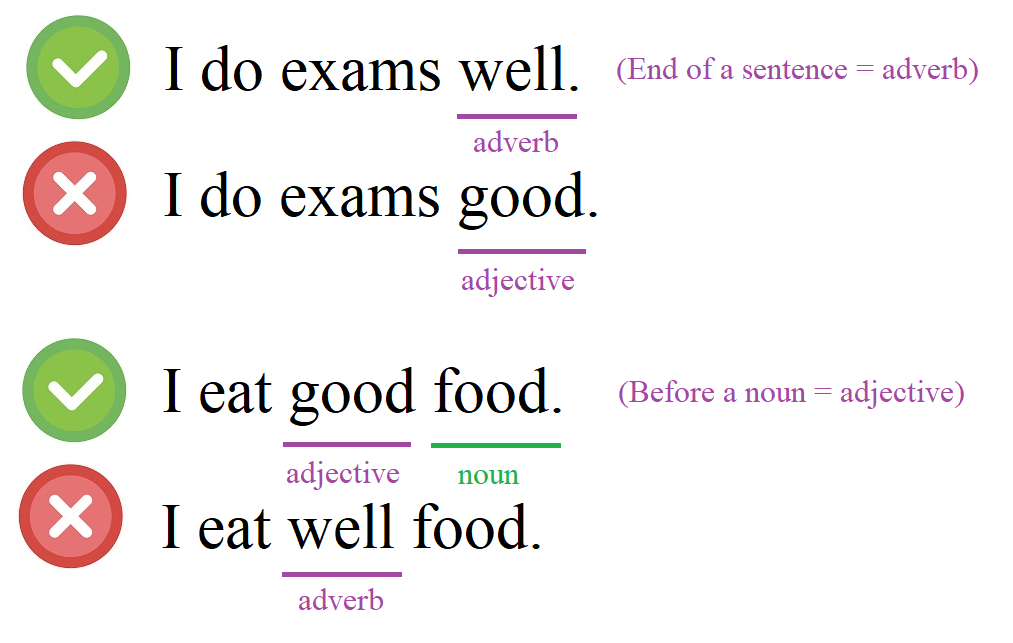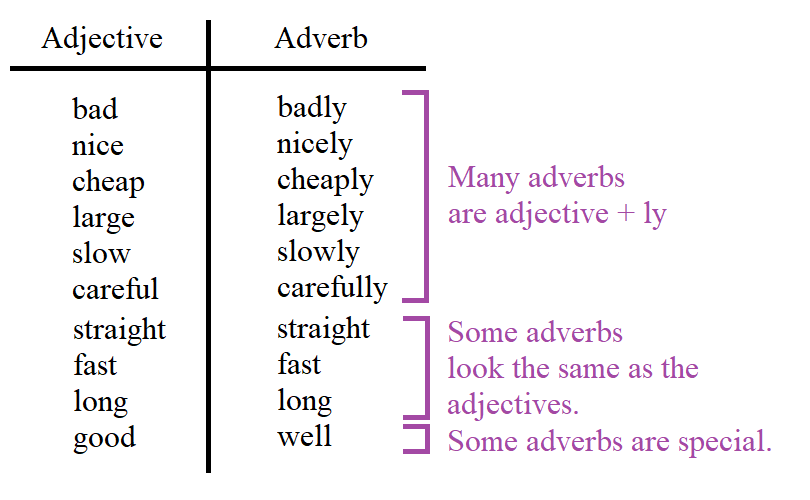Adverb of Manner
- Adverbs of manner describes how something is done.
- They are usually placed either after the main verb or after the object.
- When the emphasis is needed, the adverb can start the sentence.
- An adverb of manner can end with -ly.
An adverb of manner answers the question "How?". These adverbs explain how someone does something or how something happens. They are usually placed either after the main verb or after the object.
Adverb of Manner
An adverb of manner answers the question "How?"
For example, students do exams. You can do it well or badly. "Well" and "Badly" are adverbs of manner.

Examples:
-
I usually sleep well.
"well" is an adjective. An adverb can modify a verb.
-
I usually sleep good.
"good" is an adjective. An adjective cannot modify a verb.
Adverb of Manner in a Sentence
Put an adverb of manner either after the main verb or after the object.
When there is no object, the adverb of manner is placed after the verb.
When the verb has two objects, the adverb is placed after the first object.
Examples:
-
She reads letters carefully.
Subject - verb - object - adverb.
-
He drives slowly.
Subject - verb - adverb.
-
I gave her the cup quickly.
Subject + verb + indirect object + direct object + adverb.
In some cases, the adverb is placed at the beginning of the sentence. You do this to add emphasis.
Examples:
-
Slowly, he turned the key in the lock.
'Slowly' is at the beginning of the sentence to emphasize the manner of his action.
Adverb vs Adjective
Adjectives:
- Before a noun or as a subject complement (E.g. He is nice).
- Modifies a noun.
- Doesn't usually end with -ly.
Adverbs:
- After a noun, before a verb, before an adjective, or before an adverb.
- Modifies a verb, an adjective, or an adverb.
- Can end with -ly.

Practice this topic with the AI English Tutor
AI English Tutor will teach you the grammar and practice it with you in a conversation format. Plus, 100+ practice questions on this topic to cement your understanding.
Try ALULA for free on your phone or tablet








Do you have any questions about this lesson? Ask in the comment section, below.